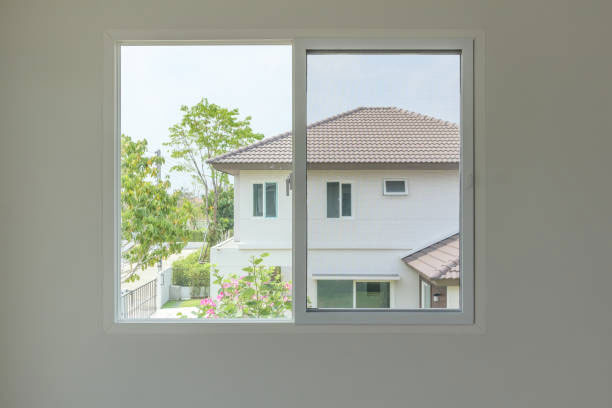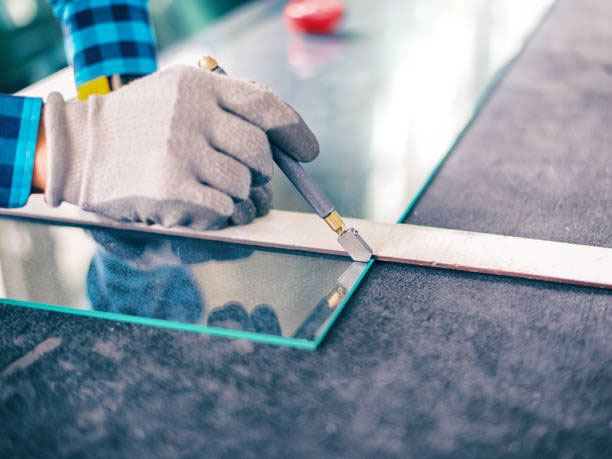Exclusive contract law for data transmission (III)
Contract law can eliminate the impact of information barriers by effectively attracting consumer’s attention and protecting those who were not aware of such rules and restrictions.
Advertisement
Susan Kelly
Apr 03, 2023
Replacing old or worn-out windows is an important investment for homeowners. Not only can new windows improve the aesthetics of a home, but they can also enhance its energy efficiency, safety, and overall value. However, replacement windows can be a significant expense, and it's crucial for homeowners to understand how the costs add up before making a purchase.
In this blog post, we'll explore the various factors that affect replacement window costs, the hidden costs that homeowners may not be aware of, and some tips for reducing costs without compromising on quality. Hence, you'll have a better understanding of how replacement window costs add up and be better equipped to make an informed decision when it comes to replacing your windows.
The cost of replacement windows can vary widely based on several factors. Here are some of the most important factors to consider:
Different types of windows can impact the cost of replacement windows. For example, standard single-hung windows are usually less expensive than double-hung windows, which are more complex and require more materials. Casement windows, which open outward with a crank, may also be more expensive due to their design.
The size of the window is another factor that can affect the cost of replacement windows. Larger windows require more materials and labor to install, so they may cost more than smaller windows. It's essential to measure your windows accurately to ensure that you get an accurate estimate of the replacement window costs.

The materials used to construct the window frame can also impact the cost of replacement windows. For example, vinyl frames are typically less expensive than wood frames or fiberglass frames. However, high-end vinyl frames may cost more than standard wood frames, so it's essential to compare different materials and brands to find the best value for your budget.
The type of glass used in the window can also impact the cost of replacement windows. For example, low-e glass or double-pane glass can improve the energy efficiency of your home, but they may be more expensive than standard single-pane glass.
Energy efficiency ratings, such as the U-factor and the Solar Heat Gain Coefficient (SHGC), can also impact the cost of replacement windows. Higher-rated windows may cost more upfront but can save you money on your energy bills in the long run.
The labor costs associated with window replacement can also add up. The complexity of the installation and the experience level of the contractor can impact labor costs.
There may be additional costs associated with replacing windows that homeowners may not be aware of. For example, if your windows are not up to code, you may need to make structural modifications to your home to bring it up to code. Additionally, if there is any damage to the surrounding area, such as walls or trim, that may also need to be repaired, which can add to the overall cost.
While the cost of materials and labor are the most obvious expenses associated with replacement windows, there are some hidden costs that homeowners should be aware of before making a purchase. Here are some of the most common hidden costs:
If your current windows are not up to code, you may need to make structural modifications to your home to bring it up to code before installing new windows. This can include adding new support beams, enlarging the window openings, or making other modifications to the frame.
In many areas, you may need a permit to replace your windows, and you may need to pass an inspection to ensure that the windows are installed correctly. These costs can vary depending on your location, but they can add several hundred dollars to the overall cost of replacement windows.
Replacing windows can also impact the surrounding area, such as the trim or finish work around the window. If the trim or finish work is damaged during the installation process, it may need to be repaired or replaced, which can add to the overall cost.

When you replace your windows, you'll need to dispose of the old windows. Depending on the size and number of windows, this can be a significant expense. If you're not able to dispose of the old windows yourself, you may need to hire a professional to do it for you.
New windows may also require new window coverings, such as blinds or curtains, which can be an additional expense.
While replacement windows can be a significant investment, there are several ways to reduce the overall cost. Here are some tips to keep in mind:
While energy-efficient windows may be more expensive upfront, they can save you money in the long run by reducing your energy bills. Look for windows with a high energy efficiency rating to maximize your savings.
Before making a purchase, do some research to compare prices from different suppliers and contractors. This can help you find the best deal and potentially save you hundreds or even thousands of dollars.
While installing replacement windows can be a complex process, there may be some tasks that you can do yourself to save money. For example, you could remove the old windows yourself to avoid paying the contractor to do it. However, it's important to make sure that you have the necessary skills and equipment before attempting any DIY work.
Window installation companies may offer lower rates during their off-season, which is typically during the fall or winter months. By scheduling your installation during this time, you may be able to save money.
There may be rebates or incentives available to homeowners who upgrade to energy-efficient windows. Check with your local government or utility company to see if there are any programs available in your area.
If the cost of replacement windows is too high to pay upfront, consider financing options such as a home equity loan or line of credit. This can help you spread out the cost over time and make the investment more manageable.
Replacing old, drafty windows can significantly improve the comfort and energy efficiency of your home, but it's important to understand the costs associated with replacement windows. The cost of replacement windows can vary widely depending on several factors, including the size and style of the windows, the material used, and the complexity of the installation.
In addition to the obvious costs of materials and labor, homeowners should also be aware of the hidden costs associated with replacement windows, such as structural modifications, permits and inspections, trim and finish work, disposal of old windows, and window coverings. By factoring in these costs, homeowners can get a more accurate idea of the total cost of replacement windows.
Advertisement
Exclusive contract law for data transmission (III)
Contract law can eliminate the impact of information barriers by effectively attracting consumer’s attention and protecting those who were not aware of such rules and restrictions.
Stablecoin in Cryptoeconomics
This article introduces the three types of stablecoins and their problems.
How to Manage Finance under Inflation
We can do finance under inflation from these points. They are: prepare enough cash for life, invest capital preservation products, invest product of stability of earning, insurance-type products. Also, we need to learn how to allocate asset under inflation.
Student Loan Scams and How to Avoid Them
Imagine how stressful it would be if you couldn't pay your federal student loans. This person claims to work for the U.S. Department of Education and calls you. To lower your monthly payments in the long term, his organization can assist you in qualifying for federal programs that do so. In exchange for a $1,000 upfront charge, monthly loan payments sent to this firm rather than your servicer, and a vow to ignore future phone calls and emails from your servicer or the Department of Education, you can avoid all of this.



